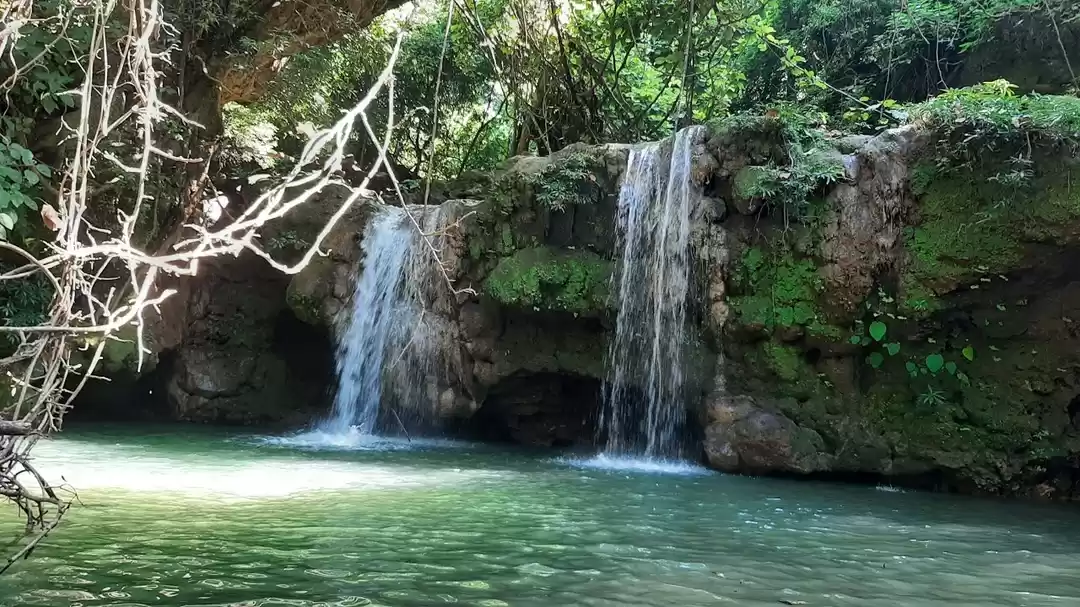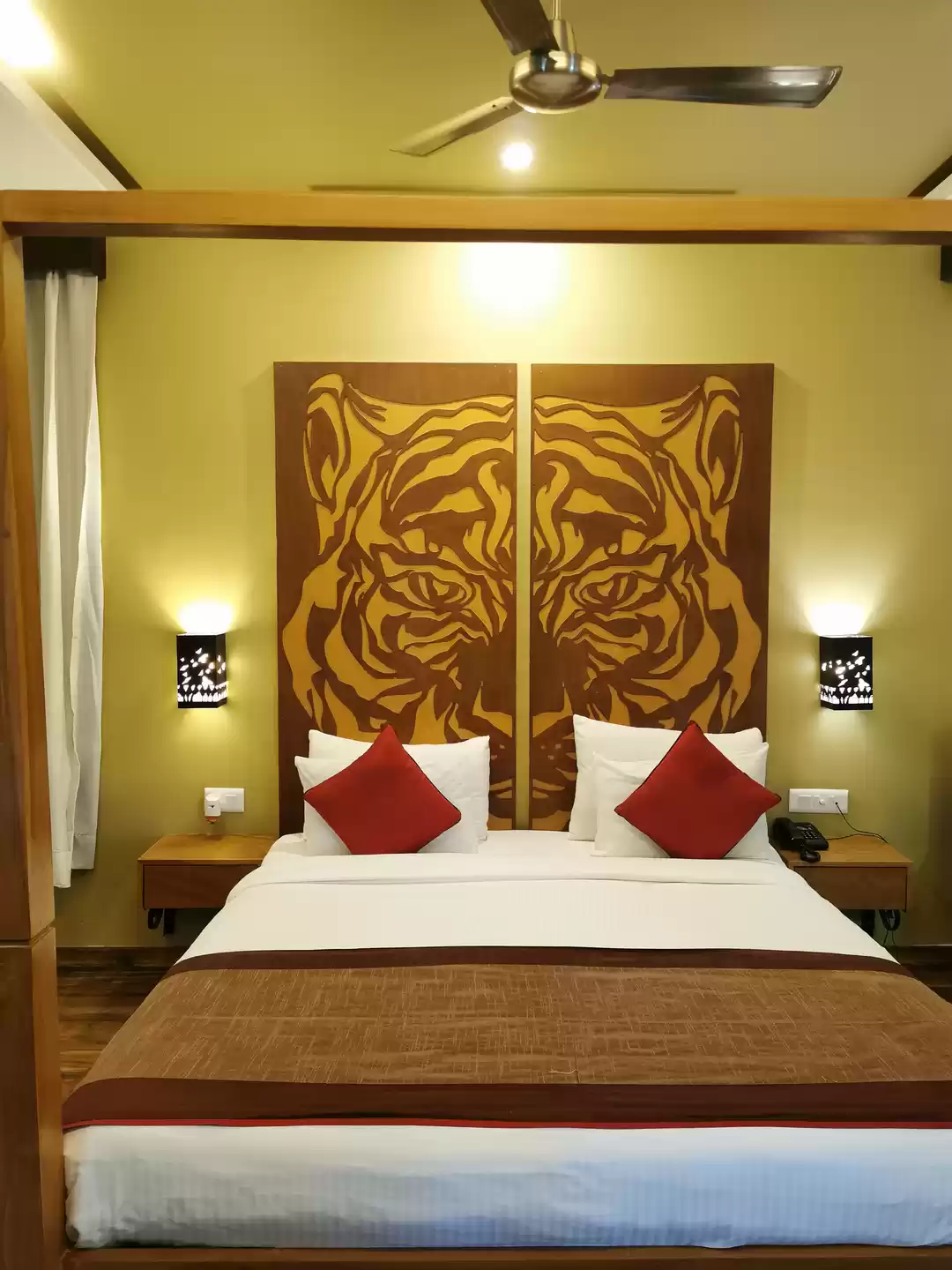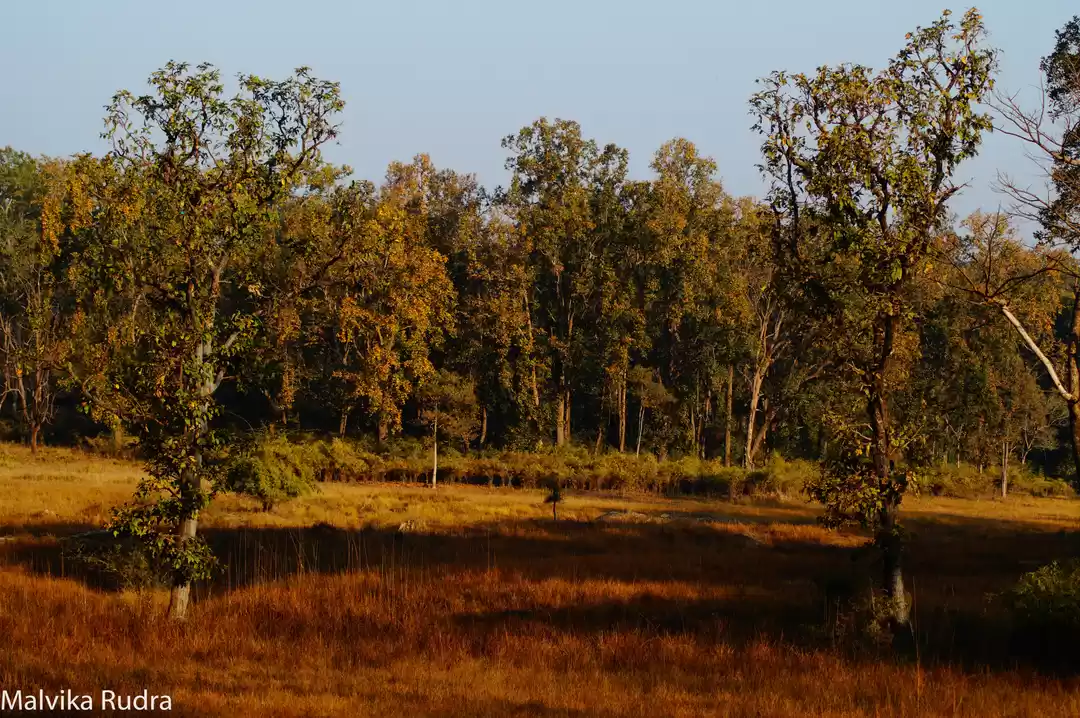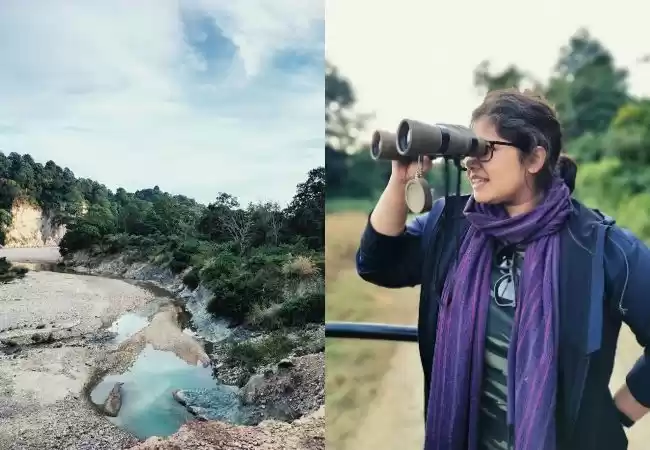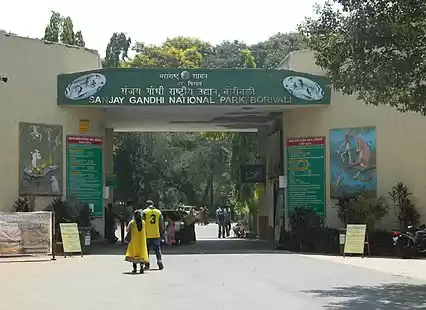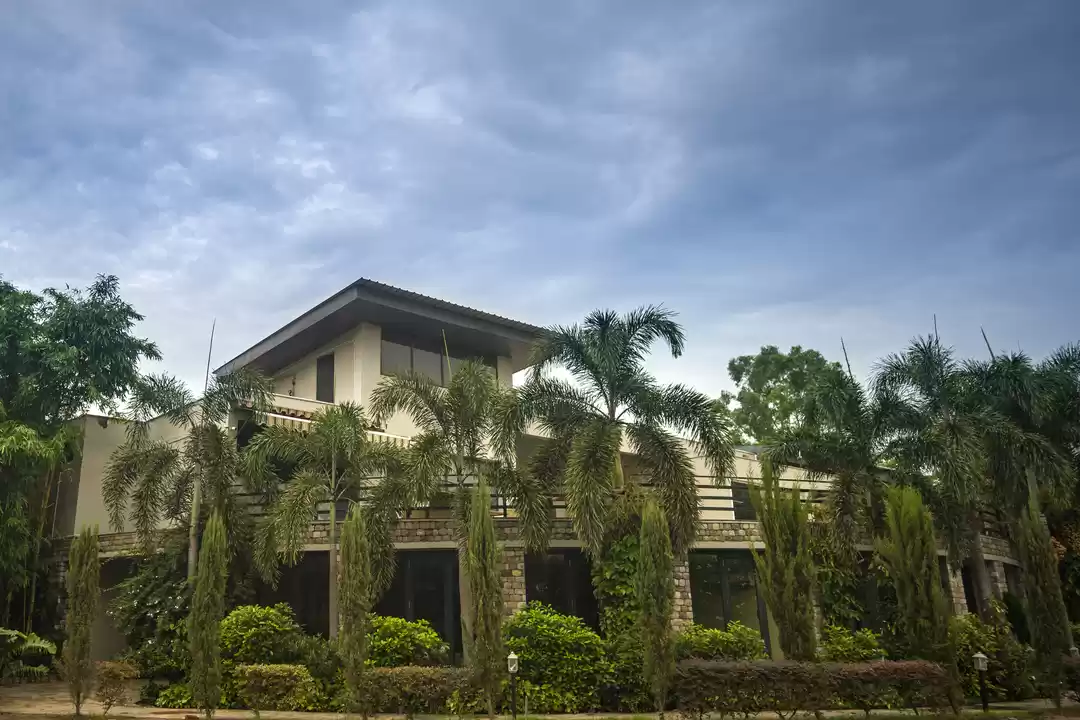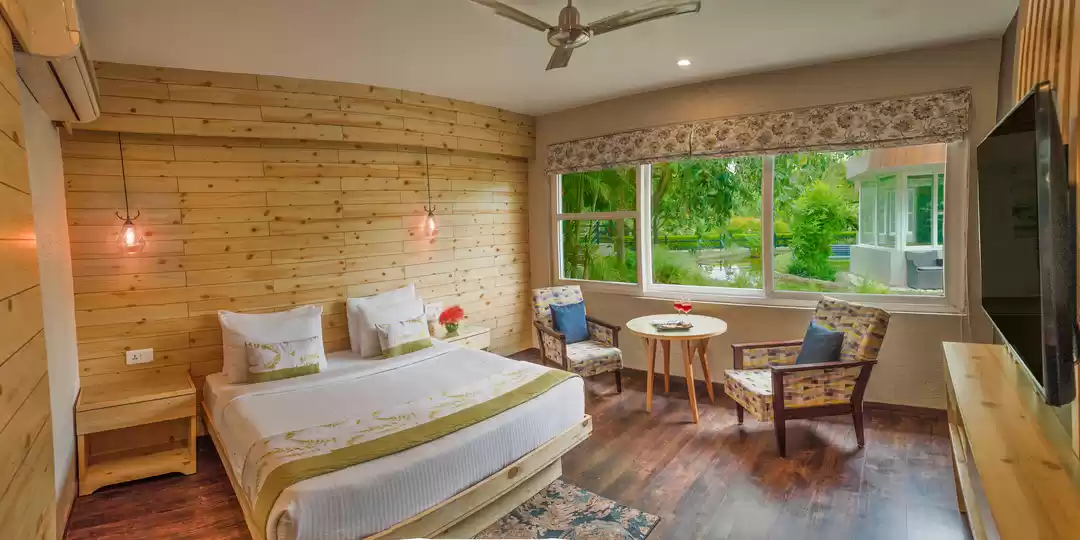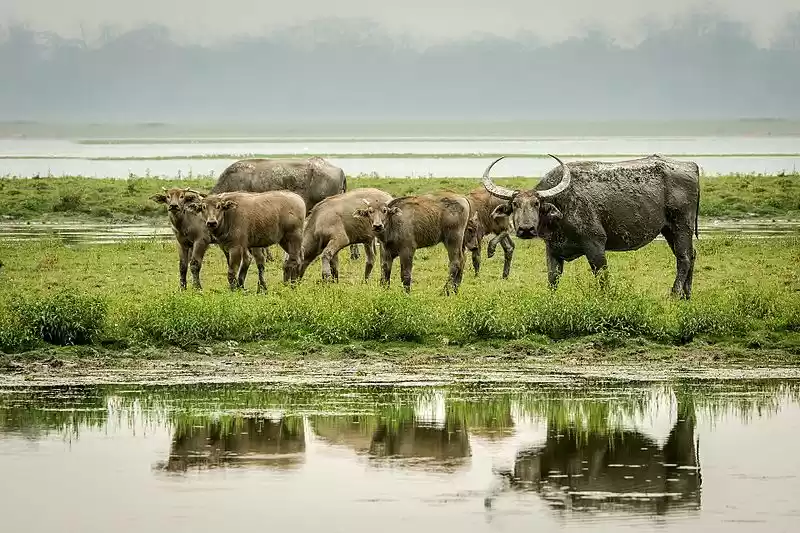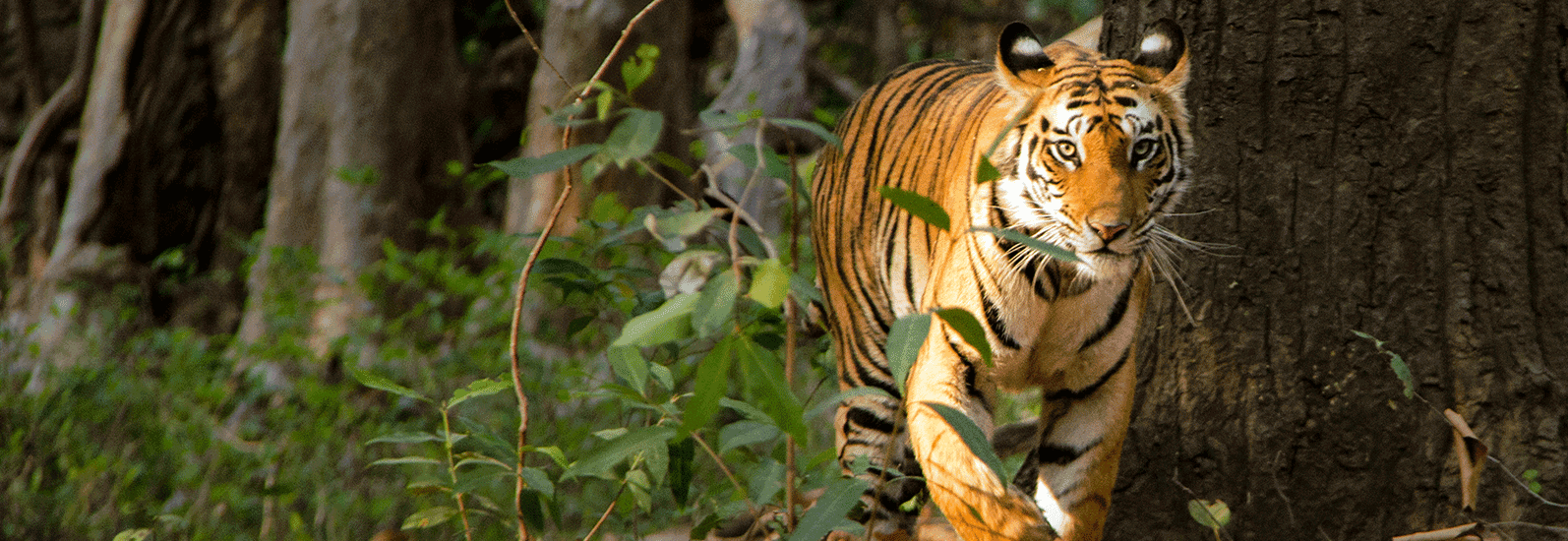The monsoon is setting in North India and it is the perfect time to travel. The springs are going to be filled with water, chill is settling in the air, and number of migratory birds find their way back to Indian plains and mountains. Being an avid birder, this was the perfect time for me to visit Jim Corbett. I wanted to enjoy the company of our feathered friends who have arrived from distant land.
Due to my preference for bird sighting, I searched for a place which was near to the national park and had lot of trees and plantations on the premises. Trust me, a rich and healthy flora and fauna would mostly result in the visit of more birds. After checking out considerable options we zeroed on a resort, situated on the gate of Dhela and Jhirna and in the lap of nature-The Golden Tusk. It celebrates picturesque countryside with the forest backdrop and is an abode to rich biodiversity.

The resort is nestled in a quaint village at the edge of the Southern periphery of reserve forest and just a five minute drive from 2 safari zones. They offer many staying options from the six distinct room categories. I stayed in the Garden View Suite, which was accompanied with a long terrace, overlooking the jungle. Being an outdoor person, I was impressed with the range of adventure activities they have to offer. They have inhouse wall climbing, rapelling, flying fox, Burma bridge, spider net, activities for all kind of adventure enthusiasts.

But what really amazed us was the presence of the variety of plant life, on the property.
While talking to the staff we came to know at the time of construction, the property was completely barren, in comparison to other neighbouring resorts. But with consistent efforts and after lot of trials and errors, the resort was able to achieve the current lush green status. They sourced wide range of plants and trees from nurseries all over India.
We witnessed the presence of UncarinaGrandidieri from Madagascar, ErythrinaCrysta-galli from Argentina, AdansoniaGregorii & BrachychitonAcerifolius from Australia, PhyllodiumLongipes from South Asian countries and Tamarisk from America.

The UncarinaGrandidieri was present in its full bloom, at the resort and was one of its primary attractions. Commonly known as the ‘Unicorn Tree’ in some parts of the world, it bears flat and pointy fruits, impressed the tree-hugger in me. The tree can grow up to 12 feet tall although it needs certain well-regulated conditions as it is not winter hardy.
The Golden Tusk resort follows an extremely nutritious plant pitting process. Probably that’s why it took only 5 years to turn the resort into green haven.
It was heartening to see the steps taken by the resort, to ensure that the natural ecosystem remains completely undisturbed. When the day was up, all activities at the resort involving light and sound was brought to a down-low. There was a minimal use of insecticide or pesticide on the resort; this helped in maintaining rich bio diversity. The lepidopterist inside me got delighted after witnessing a number of butterflies species and moths on the resort. For all the uninitiated, the butterflies can only flourish in places, where there is no or very low use of pesticides.
The resort perimeter consisted of solar fencing that has been set up by the wildlife preservation team, in collaboration with the locals to divert animals away from the premises.

The whole team at The Golden Tusk Resort along with its owners are nature preservers. In order to cultivate a sense of responsible tourism, the resort has designed nature centric itineraries. They provide a village walk, nature trail, visit to strawberry farm and many other such activities.
Also, one can book a safari from the resort. We went on an early morning safari with the resort naturalist Sureshji. He had an immense understanding of the topography and the wild life. Sitting in an open gypsy and trying to spot different animals and birds was an experience in itself.
The resort also organises small trails to nearby waterfalls. We opted for a forest trek to Barati Rau waterfall. This is an amazing trek, especially during winters guests can witness the sighting of migratory birds. Besides that, there are also numerous species of fish exclusive to this region such as the Golden Mahasir fish found in the Ramganga River. If you want to give your inner fisherman a nudge, try out for angling.
Traveling is a memorable experience, but it is important to act responsibly towards the surroundings. And all the stakeholders be it resort owners, tourists, local government should work hand in hand towards maintaining the sanctity of the place.


Contact Resort
Website: https://www.thegoldentusk.com/



